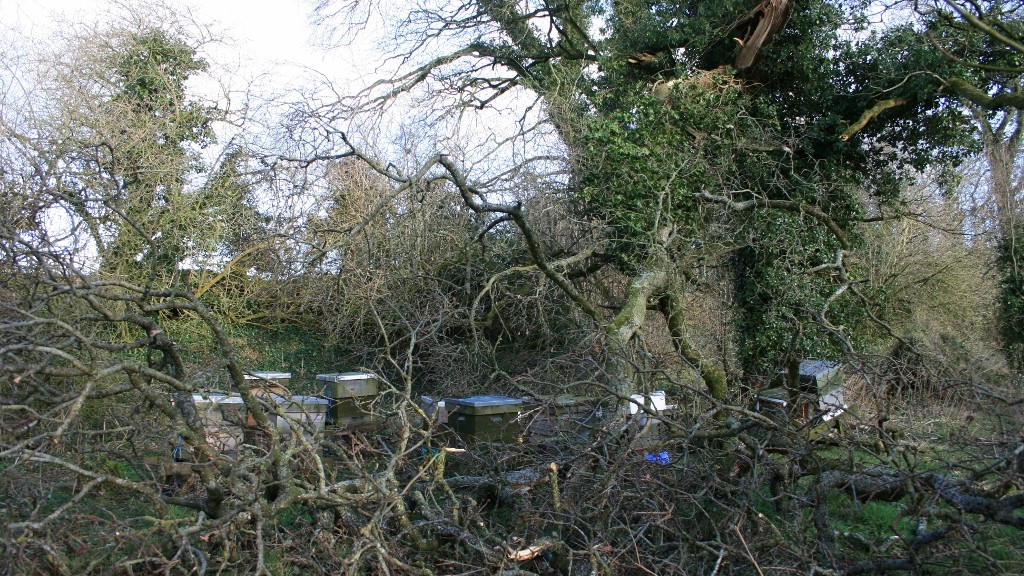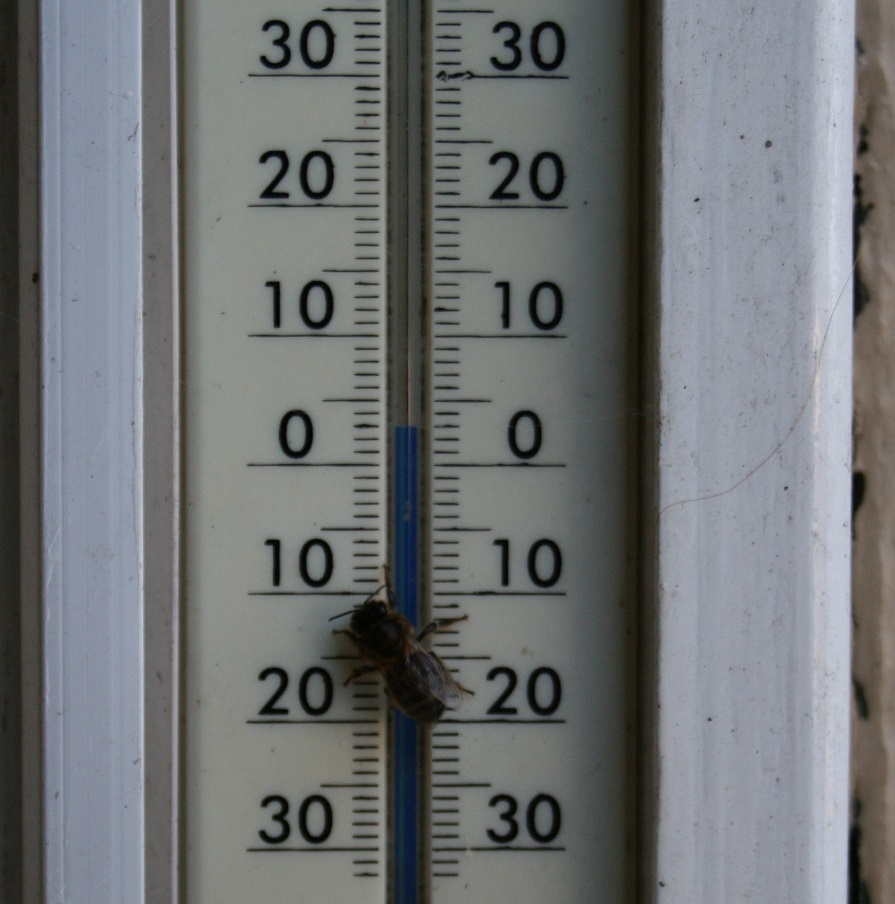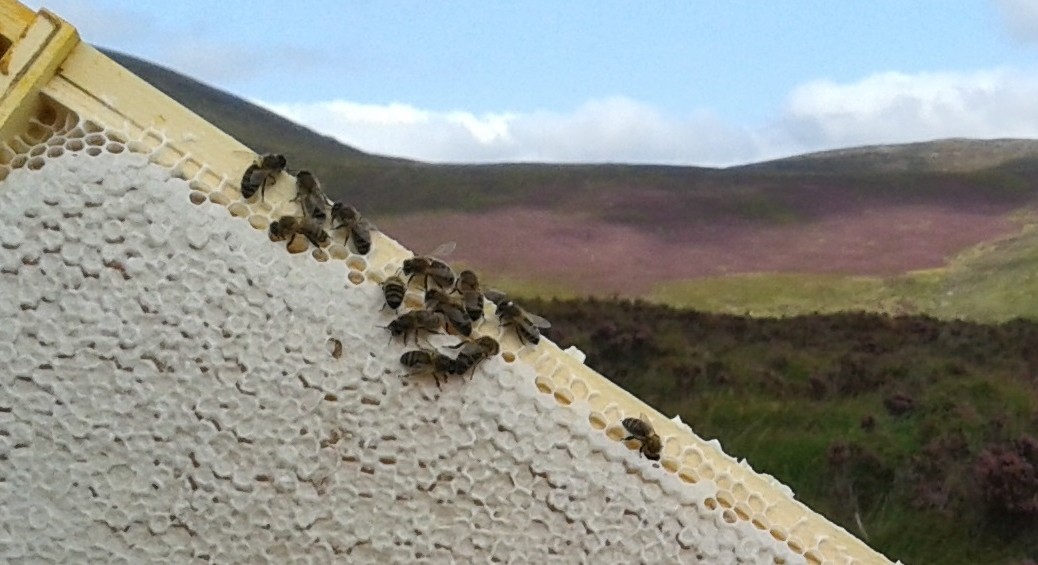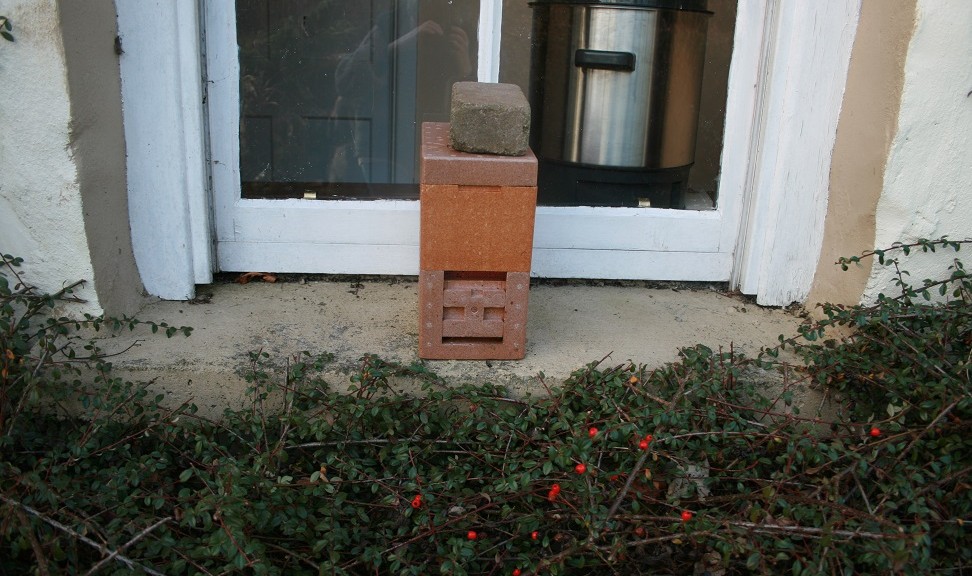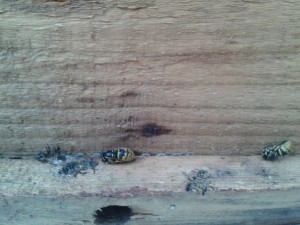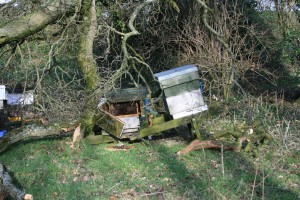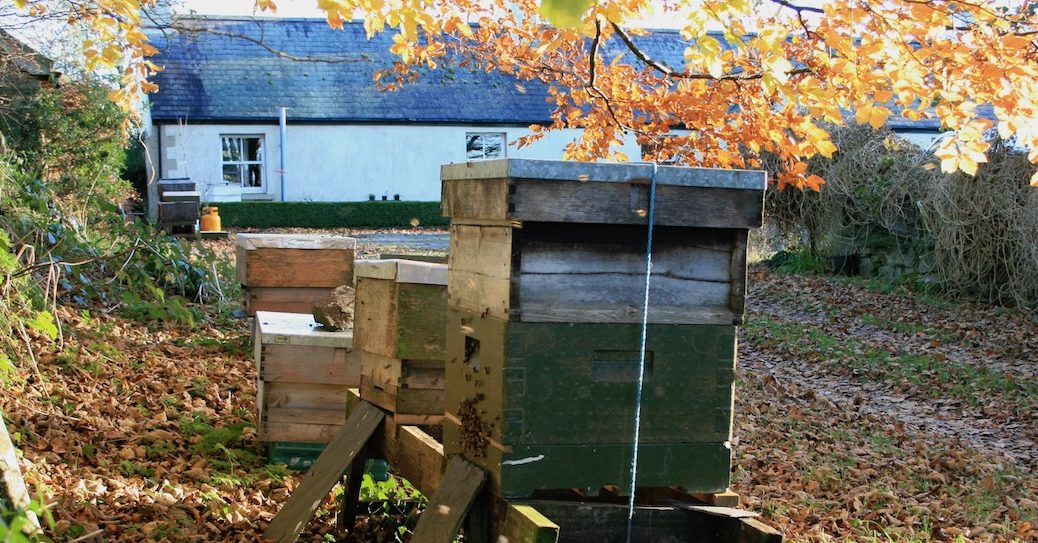This autumn was a good one for the bees and they seem to have brought in plenty of ivy honey and the hives are very heavy now – at the end of December 2013.
However this is not always the case and December and January are months when the beekeeper needs to keep an eye on the winter stores. It is not possible to feed bees with syrup in the winter because they are simply unable to ripen it so instead if the hives seem light and the bees are clustered close to the top of the frames it will do no harm to put a lump of fondant over the feed hole in the crown board and cover it with a sheet of plastic to stop it from going hard.
If they seem on the edge of extinction, fondant should be placed directly onto the bees. You need to use your imagination and/or ingenuity here if the bees are not directly beneath a feed hole. It may be possible to turn the crownboard so that they are, or fondant can be flattened to a patty which can be placed under the crownboard.
Alternative place an eke on the brood box, then a cake of fondant covered in plastic is placed directly on the bees and the eke is filled up with old jumpers, blankets or sacking and the crownboard is put onto the eke.
Swienty are now selling 15kg blocks of Apifondant which can be set directly over the bees inside an eke as described above. Click here for details of those things
In February you might like to consider giving the bees a pollen supplement such as Neopoll which will give them an early boost. This is especially useful if you are considering taking bees to the oilseed rape as it should prompt the colony into early build-up. Click here for details of Neopoll from Swienty.
You can feed a light 1:1 (1kg:1litre or 1lb:1pint) sugar syrup from St.Patrick’s day onwards using a contact feeder. If you are using a specially prepared beefeed such as Ambrosia you could water this down with a little water for spring feeding.
Click here for how to prepare Wintering Bees
Click here for Michaelmas, bees and wintering
Click here for Which Feeder
Click here for how to feed a wintering apidea
Click here for mid-winter feeding of bees
Click here for mid-winter oxalic acid Varroa treatment
Copyright © Beespoke.info, 2015. All Rights Reserved.
